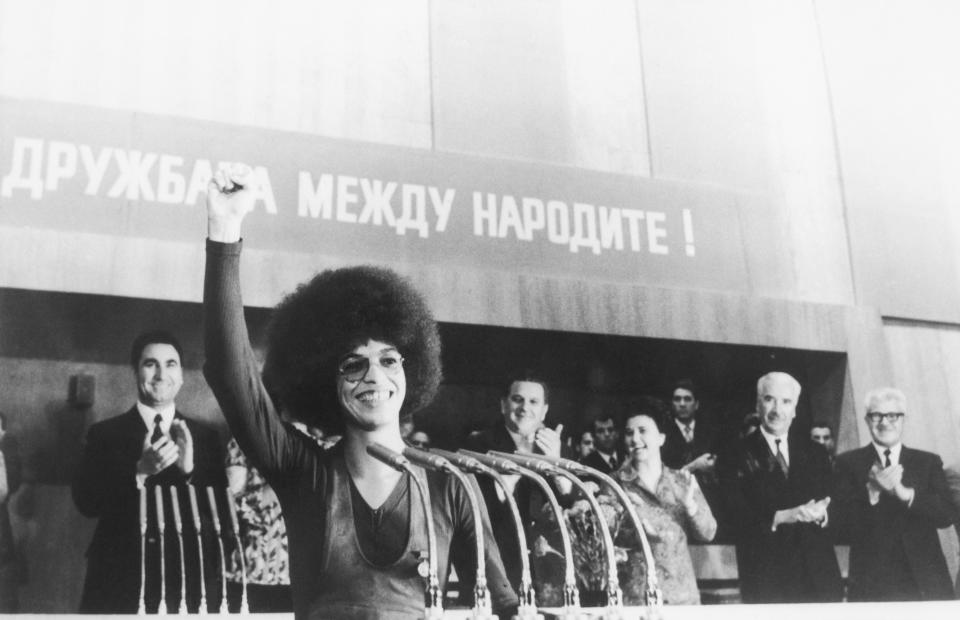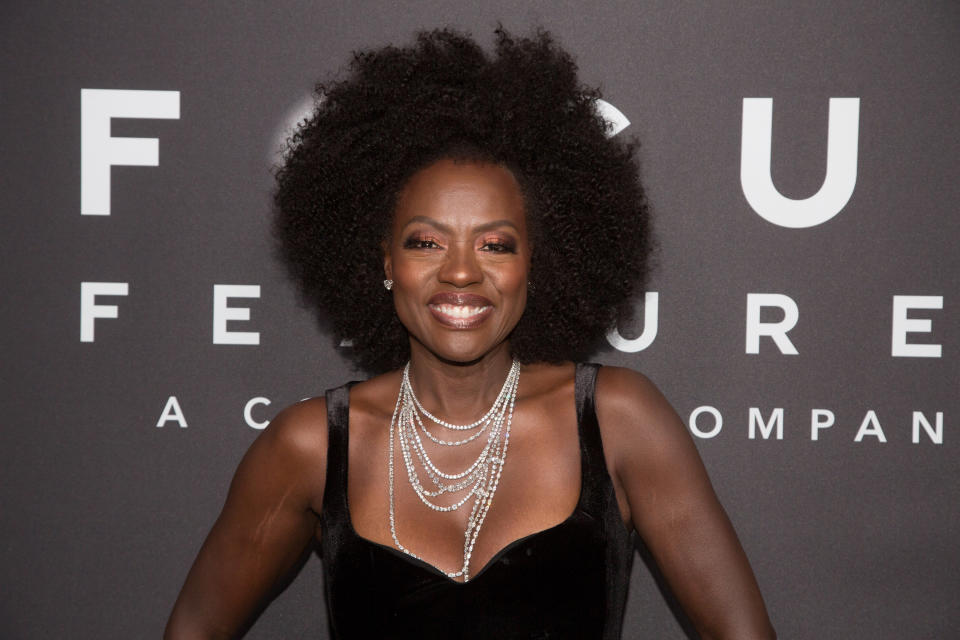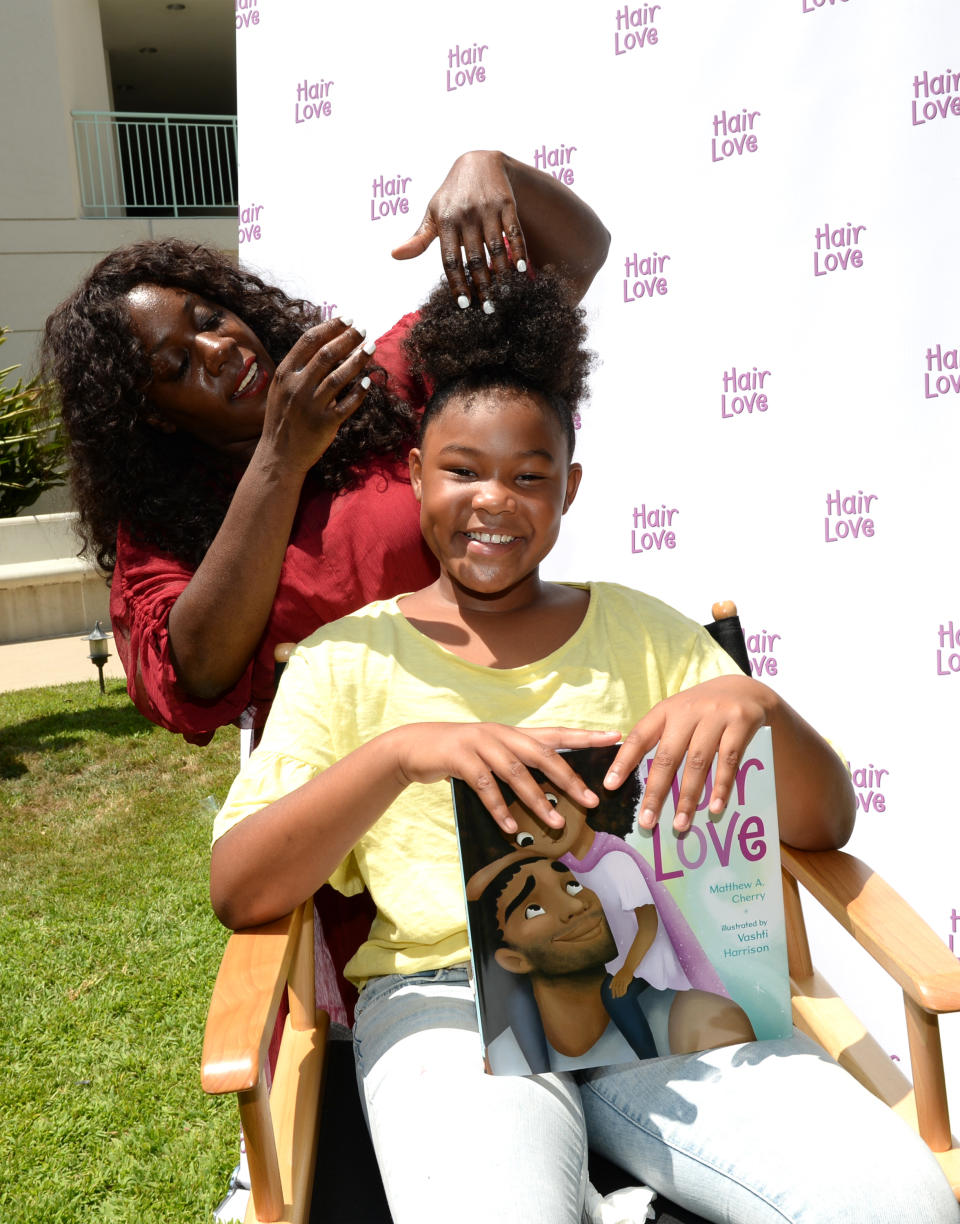'I'm not coming here to conform': Black women on why wearing their natural hair at work matters
Wearing your hair however you choose to work — unless it poses a safety hazard or health risk — shouldn’t come with consequences. But many black women with natural hair feel pressured to conform to prejudiced beauty standards to avoid being penalized, or even worse, fired. So, they straighten their curls, cut them off entirely or wear extensions instead of Afros, braids, locs, twists and other natural hairstyles.
The perception of “professional” hair in the workplace is subjective. When appearance guidelines are mostly dictated and enforced by individuals who don’t have natural hair, this lays the foundation for hair-based discrimination to permeate professional settings. However, more and more black women with natural hair aren’t allowing this to stop them from bringing their whole selves to work.
Verizon and BUILD Series recently teamed up to produce a short film entitled Proud of My Hair, where beauty and media industry leaders sat down at the Soultry Scissors hair studio in West Orange, N.J. for a candid conversation about authenticity and hair.

When speaking to the evolution of the natural hair movement, Curls founder and CEO Mehisha Dellinger notes that: “Back in the ‘70s, it was a political black power movement with natural and Afros. Now it’s more of an emotionally-charged movement. So it is all about taking back power of who we are.”

Kim Givens, owner of Soultry Scissors, sees this manifest in the types of services her clientele request. Givens started doing natural hair in 2003, and she recognizes the huge responsibility she carries styling “professional women” who are principals, administrators, teachers, moms who need to “present everyday or in their workspace.” She explains, “I am listening, I am hearing and I am feeling what a sister needs.”
Having a hairstylist who understands the uniqueness of natural hair is important to black women and men who want to show up at work looking and feeling their best. “[Our hair] breeds our confidence,” says Dellinger. “Your self-esteem starts there. When you come out your best. You are your best. It’s not superficial.”
Fashion and beauty marketing strategist Trenesa Stanford-Danuser echos this sentiment. “Work is hard, and so I don’t want to have to work on myself and do the job. So being authentic is really the easiest place to be,” she says.
Stanford-Danuser fondly recalls interviewing for a “very large global job” and before meeting with the company’s CEO, she “deliberately blew out her Afro as far as it could go.” She did indeed get the job, but what was just as much of an accomplishment, was showing that she was “not coming here to conform.”
Genia Wilbourn, Verizon’s senior vice president of global network operations and assurance, points out the impact this has on other black women working in corporate America who may look to someone like Stanford-Danuser for inspiration to proudly wear their natural hair.

Honest conversations like those seen in this short film, along with Hollywood (hello, Matthew A. Cherry’s Hair Love) and real-life representation are crucial to educating people on the topic of hair in the black community, according to HuffPost producer Shaquille Romblay. And this was at the very core of the “Black Hair Defined” project Romblay collaborated on with fellow journalists for Black History Month to celebrate the diversity of all types of black hair, including “the beautiful curls, straight, blonde, waves on swim.”
Even though it has become more common to see black women and men with natural hair in professional and academic settings, prejudice still exists. A recent and notable example of this is Texas high school student DeAndre Arnold, who was threatened with suspension and told he couldn’t participate in graduation unless he cut his locs.
As a result of national outcry, states and local municipalities are enacting a law widely known as The CROWN Act (Creating a Respectful and Open World for Natural Hair) that ban practices and policies against individuals with textured styles. As of today, California, New York, New Jersey, Cincinnati, Ohio and Montgomery County, Md. have already passed it.
“The CROWN Act underscores an important cultural shift. We know that narrow beauty standards in America continue to perpetuate unfair scrutiny and discrimination against black women and girls for wearing hairstyles inherent to their identity,” Esi Eggleston Bracey, Unilever’s beauty and personal care EVP/COO in North America tells Yahoo Lifestyle. “As a founding member of the CROWN coalition, Dove along with organizations like the National Urban League, Color Of Change and Western Center on Law and Poverty, are working to create a more equitable and inclusive experience for black women and girls through the advancement of anti-hair discrimination legislation.”
Romblay is “happy that the legislation is happening,” but he also thinks it’s shameful that black women and men need laws to “protect how we look.” Still, he remains hopeful saying, “I’m going to hold on to the positiveness, celebrate the beauty that is black hair and the glory that is our crowns.”
